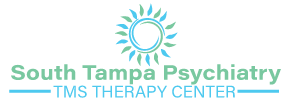Depression is one of the most common mental health disorders in the United States. Minor and major depression sometimes goes undiagnosed because symptoms often intensify and recede in cycles. Additionally, many people who struggle with depression are reluctant to get help because of the stigma or shame that they face. However, there are many types of therapy for depression. When symptoms of depression persist or become debilitating, exploring treatment is important.
What is TMS Therapy?
TMS stands for transcranial magnetic stimulation. A noninvasive procedure using a magnetic device to stimulate the nerve cells in your brain, TMS is a helpful therapy for those suffering from depression. Invented in 1985 and FDA-approved for use in 2008, finding TMS therapy for depression in Tampa offers an alternative to anti-depressants or for those for whom the medication didn’t work.
How Does TMS Therapy Work?
During a TMS session, the therapist will place an electromagnetic coil against your scalp near your forehead. The entire procedure is painless and noninvasive. The electromagnet brings a magnetic pulse to the nerve cells in the area of your brain that controls mood. Your mood directly affects whether you have depression or not. This painless electromagnet pulse provides an increase in activity to the area that boosts mood, thus decreasing depression. The stimulation to the nerve cells impacts how the brain works, easing depression symptoms and improving mood.
Who Benefits from This Therapy?
People who suffer from a major depressive disorder are at risk for other health problems such as sleep disturbances, anxiety, pain, and even suicide. Some people don’t respond well to anti-depressants. Either it doesn’t help them or they have negative side effects. When this occurs, TMS is a valuable option to try for depression. In fact, this is helpful for anyone who would like a non-invasive, drug-free experience.
Other Types of Therapy for Depression
When seeking a depression treatment program, it’s important to understand the various therapies you might encounter. Psychotherapy offers a way to explore your personal history and past traumas to better understand your symptoms. Additionally, therapies focus on long-term coping skills and strategies you will need to continuously manage your symptoms. Group therapy provides peer support from other people dealing with depression. This way, you and your peers can work on your mental health together.
Other, more holistic methods, can treat your whole system. Recreation therapy focuses on healthy exercise that improves your mood and helps you feel more connected to your body. Additionally, dealing with any sleep disorders through therapy can help. Physicians indicate that getting enough sleep is an important factor for keeping depression in check. Nutrition therapy and eating properly can improve your health and help restore balance to your brain chemistry.
Often, depression and substance abuse intertwine. Self-medicating depression symptoms with drugs or alcohol only makes symptoms worse. This drives more substance use and can spiral into addiction. Dual diagnosis treatment can be essential when recovering from depression and substance abuse.
Seek Help for Depression Today
Now that you know the different types of therapy for depression, you can seek proper psychiatric treatment. Don’t delay, find relief from your symptoms today. Contact South Tampa Psychiatry to start on the pathway to better mental health.







